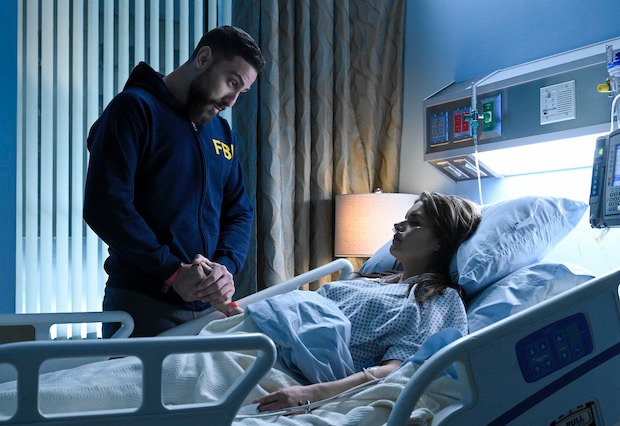
Introduction: Why ‘FBI’ Hits So Hard
Ever watch an episode of FBI and feel like someone punched you in the gut? You’re not alone. This show doesn’t just dabble in danger—it dives headfirst into it. And when characters fall, it hurts. Not just because we lose great agents, but because we lose pieces of ourselves right along with them.
The Power of Loss in Crime Dramas
Sure, we expect danger. It’s the FBI, after all. But the emotional gravity of a character’s death hits differently when we’ve seen them risk everything for justice. Crime dramas like FBI use death not as a gimmick, but as a way to remind us that in real life, heroism comes at a cost.
Maggie Bell’s Brush With Death—A Fan Favorite Nearly Lost
Remember when Maggie got exposed to sarin gas in Season 4? That wasn’t just dramatic—it was terrifying. Fans held their breath for weeks, wondering if she’d make it. Missy Peregrym’s character has been the backbone of the team, and her near-death wasn’t just a plot twist—it was a punch to the soul.
Why Maggie’s Poisoning Left Viewers Breathless
Maggie’s slow collapse during a takedown operation was the kind of scene that lingers. The visuals. The frantic reactions. The haunting silence after. It was beautifully devastating. Her recovery gave fans hope, but we all remember how close she came to leaving us.
Hobbs’s Death: A Sudden, Silent Goodbye
Now let’s talk about Agent Hobbs. His death wasn’t drawn-out. No farewell speech. No dramatic standoff. Just… gone. And that’s what made it sting even more. Sometimes death doesn’t come with a warning—it just steals a person from the screen, and from us.
The Unseen Toll of Agent Hobbs’ Loss on the Team
The show didn’t just skip past Hobbs’s death. It let us see how it rattled the team. The normally composed Jubal cracked, OA was visibly shaken, and Isobel carried that loss like an anchor. It wasn’t just a death—it was a shift in the show’s heartbeat.
Nina Chase’s Exit: Not a Death, But Still a Heartbreaker
While Nina didn’t die, her departure left an emotional crater. Shantel VanSanten brought strength and vulnerability to her role. When she stepped away to start a new chapter with Scola and their baby, it felt like a loss. A beautiful one, sure—but still a goodbye.

Kristen Chazal’s Trauma: Surviving But Forever Changed
Kristen’s exit didn’t involve death either, but let’s be real—it was traumatic. After being brutally attacked during a case, she never quite recovered. Her decision to leave the field was heartbreaking because it showed the real toll this job takes on agents.
Steve’s Tragic End in Season 3—A Mission Gone Wrong
Steve, an undercover agent fans didn’t know long, made a big impact in a short time. His brutal death in Season 3 was raw. It reminded viewers that sometimes the heroes don’t come back from the mission. The silence after his death? Deafening.
The Death of Antonio Vargas: Did He Deserve It?
Vargas wasn’t exactly beloved—he was a villain. But his death was still monumental. A long-time nemesis of the FBI team, his final moments closed a dark chapter. Still, the moral ambiguity surrounding his death stirred serious debate among fans.
Unforgettable Sacrifices: Victims We Still Remember
Let’s not forget the civilians and agents lost along the way—each one left a mark. From victims caught in bombings to agents making the ultimate sacrifice, these characters might’ve had small screen time, but they carried huge emotional weight.
The Realism Behind ‘FBI’ Deaths: What Makes Them Hit Home
The show doesn’t glamorize death. It treats it with weight. No matter how small the role, a death on FBI feels personal. That’s because the writers ground their stories in emotional truth—and we feel it in our bones.
Character Attachments and Emotional Fallout
Let’s face it—we get attached. We know these agents. We root for them. So when they fall, it hits us like we’ve lost a friend. FBI knows how to pull at those heartstrings without feeling manipulative. That’s a rare skill in network TV.
How ‘FBI’ Uses Loss to Drive Storylines
Unlike shows that use death as shock value, FBI weaves it into the narrative. Maggie’s return wasn’t just about her survival—it was about resilience. Hobbs’s absence changed team dynamics. Every loss ripples through the series with lasting impact.
Final Thoughts: Why These Deaths Still Haunt Us
There’s something uniquely gut-wrenching about a well-written TV death. And FBI doesn’t miss. Whether it’s Maggie gasping for air or Hobbs vanishing without fanfare, these moments stay with us because they remind us of real-life loss, courage, and sacrifice.
Conclusion
FBI delivers drama with authenticity—and its character deaths pack a powerful emotional punch. Whether it’s the shock of an unexpected loss or the slow burn of a near-death experience, the series makes sure we feel it. These stories of sacrifice, trauma, and resilience don’t just move the plot forward—they stick with us long after the credits roll. And maybe, that’s what makes FBI one of the most emotionally gripping procedurals on television today.
5 Unique FAQs About ‘FBI’ Character Deaths
1. Did Maggie Bell actually die on ‘FBI’?
No, Maggie Bell survived a life-threatening sarin gas exposure and returned after recovering. Her absence was temporary but deeply emotional.
2. Why did Agent Hobbs leave the show?
Hobbs’s character was written off following his sudden death during an operation. The abruptness was meant to reflect the harsh unpredictability of real FBI work.
3. Is Nina Chase coming back to ‘FBI’?
As of now, Nina has taken a step back to raise her child with Scola. There’s no official confirmation of her return, but fans remain hopeful.
4. Which ‘FBI’ character’s death impacted fans the most?
While opinions vary, Maggie’s near-death and Hobbs’s unexpected passing top the list for most emotional impact.
5. Why does ‘FBI’ include so many character deaths?
To reflect the danger of law enforcement and add emotional realism. The show balances suspense with human vulnerability, making the loss feel real and resonant.